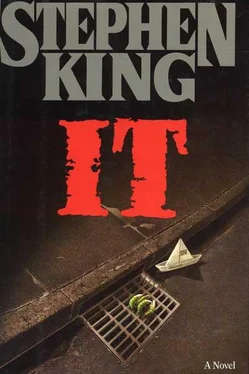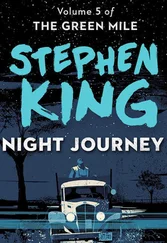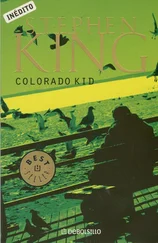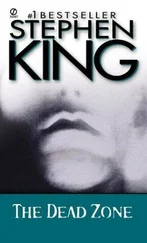Stephen King - It
Здесь есть возможность читать онлайн «Stephen King - It» весь текст электронной книги совершенно бесплатно (целиком полную версию без сокращений). В некоторых случаях можно слушать аудио, скачать через торрент в формате fb2 и присутствует краткое содержание. Год выпуска: 1986, Жанр: Ужасы и Мистика, на английском языке. Описание произведения, (предисловие) а так же отзывы посетителей доступны на портале библиотеки ЛибКат.
- Название:It
- Автор:
- Жанр:
- Год:1986
- ISBN:нет данных
- Рейтинг книги:4.33 / 5. Голосов: 3
-
Избранное:Добавить в избранное
- Отзывы:
-
Ваша оценка:
- 80
- 1
- 2
- 3
- 4
- 5
It: краткое содержание, описание и аннотация
Предлагаем к чтению аннотацию, описание, краткое содержание или предисловие (зависит от того, что написал сам автор книги «It»). Если вы не нашли необходимую информацию о книге — напишите в комментариях, мы постараемся отыскать её.
It — читать онлайн бесплатно полную книгу (весь текст) целиком
Ниже представлен текст книги, разбитый по страницам. Система сохранения места последней прочитанной страницы, позволяет с удобством читать онлайн бесплатно книгу «It», без необходимости каждый раз заново искать на чём Вы остановились. Поставьте закладку, и сможете в любой момент перейти на страницу, на которой закончили чтение.
Интервал:
Закладка:
“Y-Y-Yes,” Bill said, drawing a little closer to his father to look at the lines, close enough so that his shoulder was against his father’s arm.
“Someday they’ll put a stop to pumping raw sewage into the river and that’ll be an end to the whole business. But for now, we’ve got those pumps in the… what did your buddy call em?”
“Morlock holes,” Bill said, with not a trace of a stutter; neither he nor his father noticed.
“Yeah. That’s what the pumps in the Morlock holes are for, anyway, and they work pretty well except when there’s too much rain and the streams overflow. Because, although the gravity drains and the sewers with the pumps were meant to be separate systems, they actually crisscross all over the place. See?” He drew a series of “X’s radiating out from the line which represented the Kenduskeag, and Bill nodded. “Well, the only thing you need to know about water draining is that it will go wherever it can. When it gets high, it starts to fill up the drains as well as the sewers. When the water in the drains gets high enough to reach those pumps, it shorts them out. Makes trouble for me, because I have to fix them.”
“Dad, h-how big are the suh-sewers and drains?”
“You mean, what’s the bore on them?”
Bill nodded.
The main sewers are maybe six feet in diameter. The secondaries, from the residential areas, are three or four, I guess. Some of them might be a little bigger. And believe me when I tell you this, Billy, and you can tell your friends: you never want to go into one of those pipes, not in a game, not on a dare, not for any reason.”
“Why?”
“A dozen different town governments have built on them since 1885 or so. During the Depression the WPA put in a whole secondary drain system and a tertiary sewer system; there was lots of money for public works back then. But the fellow who bossed those projects got killed in World War II, and about five years later the Water Department found out that the system blueprints were mostly gone. That’s about nine pounds of blues that just disappeared sometime between 1937 and 1950. My point is that nobody knows where all the damned sewers and drains go, or why.
“When they work, nobody cares. When they don’t, there’s three or four sad sacks from Derry Water who have to try and find out which pump went flooey or where the plug-up is. And when they go down there, they damn well pack a lunch. It’s dark and it’s smelly and there are rats. Those are all good reasons to stay out, but the best reason is that you could get lost. It’s happened before.”
Lost under Derry. Lost in the sewers. Lost in the dark. There was something so dismal and chilling about the idea that Bill was momentarily silenced. Then he said, “But haven’t they ever suh-suh-hent people down to map-”
“I ought to finish these dowels,” Zack said abruptly, turning his back and pulling away. “Go on in and see what’s on TV”
“B-B-But Dah-Dah-Dad-”
“Go on, Bill,” Zack said, and Bill could feel the coldness again. That coldness made suppers a kind of torture as his father leafed through electrical journals (he hoped for a promotion the following year), as his mother read one of her endless British mysteries: Marsh, Sayers, Innes, Allingham. Eating in that coldness robbed food of its taste; it was like eating frozen dinners that had never seen the inside of an oven. Sometimes, after, he would go up to his room and lie on his bed, holding his griping stomach, and think: He thrusts his fists against the posts and still insists he sees the ghosts. He thought of that more and more since Georgie had died, although his mother had taught him the phrase two years before. It had taken on a talismanic cast in his mind: the day he could walk up to his mother and simply speak that phrase without tripping or stuttering, looking her right in the eye as he spoke it, the coldness would break apart; her eyes would light up and she would hug him and say, “Wonderful, Billy! What a good boy! What a good boy!”
He had, of course, told this to no one. Wild horses would not have dragged it from him; neither the rack nor the boot would have induced him to give up this secret fantasy, which lay at the very center of his heart. If he could say this phrase which she had taught him casually one Saturday morning as he and Georgie sat watching Guy Madison and Andy Devine in The Adventures of Wild Bill Hickok, it would be like the kiss that awakened Sleeping Beauty from her cold dreams to the warmer world of the fairytale prince’s love.
He thrusts his fists against the posts and still insists he sees the ghosts.
Nor did he tell it to his friends on that July 3rd-but he told them what his father had told him about the Derry sewer and drain systems. He was a boy to whom invention came easily and naturally (sometimes more easily than telling the truth), and the scene he painted was quite different from the scene in which the conversation had actually taken place: he and his old man had been watching the tube together, he said, having cups of coffee.
“Your dad lets you have coffee?” Eddie asked.
“Sh-sh-sure,” Bill said.
“Wow,” Eddie said. “My mother would never let me have a coffee. She says the caffeine in it is dangerous.” He paused. “she drinks quite a bit of it herself, though.”
“My dad lets me have coffee if I want it,” Beverly said, “but he’d kill me if he knew I smoked.”
“What makes you so sure it’s in the sewers?” Richie asked, looking from Bill to Stan Uris and then back to Bill again.
“E-E-Everything g-goes back t-to th-th-that,” Bill said. “The v-voices Beh-he-heverly heard c-came from the d-d-drain. And the bluh-blood. When the c-c-clown ch-chased us, those o-orange buh-buh-buttons were by a suh-sewer. And Juh juh-George-”
“It wasn’t a clown, Big Bill,” Richie said. “I told you that. I know it’s crazy, but it was a werewolf.” He looked at the others defensively. “Honest to God. I saw it.”
Bill said: “It was a werewolf for y-y-you.”
“Huh?”
Bill said, “d-Don’t you s-s-see? It was a wuh-wuh-were wolf for y-you because y-you saw that duh-humb movie at the A-A-A-Aladdin.”
“I don’t get it.”
“I think I do,” Ben said quietly.
“I went to the l-l-library and l-looked it uh-uh-up,” Bill said. “I think It’s a gluh-gluh’-he paused, throat straining, and spat it out-’a glamour.”
“Glammer?” Eddie asked doubtfully.
“G-G-Glamour,” Bill said, and spelled it. He told them about an encyclopedia entry on the subject and, a chapter he had read in a book called Night’s Truth. Glamour, he said, was the Gaelic name for the creature which was haunting Derry; other races and other cultures at other times had different words for it, but they all meant the same thing. The Plains Indians called it a manitou, which sometimes took the shape of a mountain-lion or an elk or an eagle. These same Indians believed that the spirit of a manitou could sometimes enter them, and at these times it was possible for them to shape the clouds themselves into representations of those animals for which their houses had been named. The Himalayans called it a tallus or taelus, which meant an evil magic being that could read your mind and then assume the shape of the thing you were most afraid of. In Central Europe it had been called eylak, brother of the vurderlak, or vampire. In France it was le loup-garou, or skin-changer, a concept that had been crudely translated as the werewolf, but, Bill told them, le loup-garou (which he pronounced “le loop-garoo’) could be anything, anything at all: a wolf, a hawk, a sheep, even a bug.
“Did any of those articles tell you how to beat a glamour?” Beverly asked.
Bill nodded, but he didn’t look hopeful. “The H-H-Himalayans had a rih-hi-hitual to g-get rih-rid of i-i-it, but ih-it’s pretty gruh-gruh-grue-some.”
Читать дальшеИнтервал:
Закладка:
Похожие книги на «It»
Представляем Вашему вниманию похожие книги на «It» списком для выбора. Мы отобрали схожую по названию и смыслу литературу в надежде предоставить читателям больше вариантов отыскать новые, интересные, ещё непрочитанные произведения.
Обсуждение, отзывы о книге «It» и просто собственные мнения читателей. Оставьте ваши комментарии, напишите, что Вы думаете о произведении, его смысле или главных героях. Укажите что конкретно понравилось, а что нет, и почему Вы так считаете.











